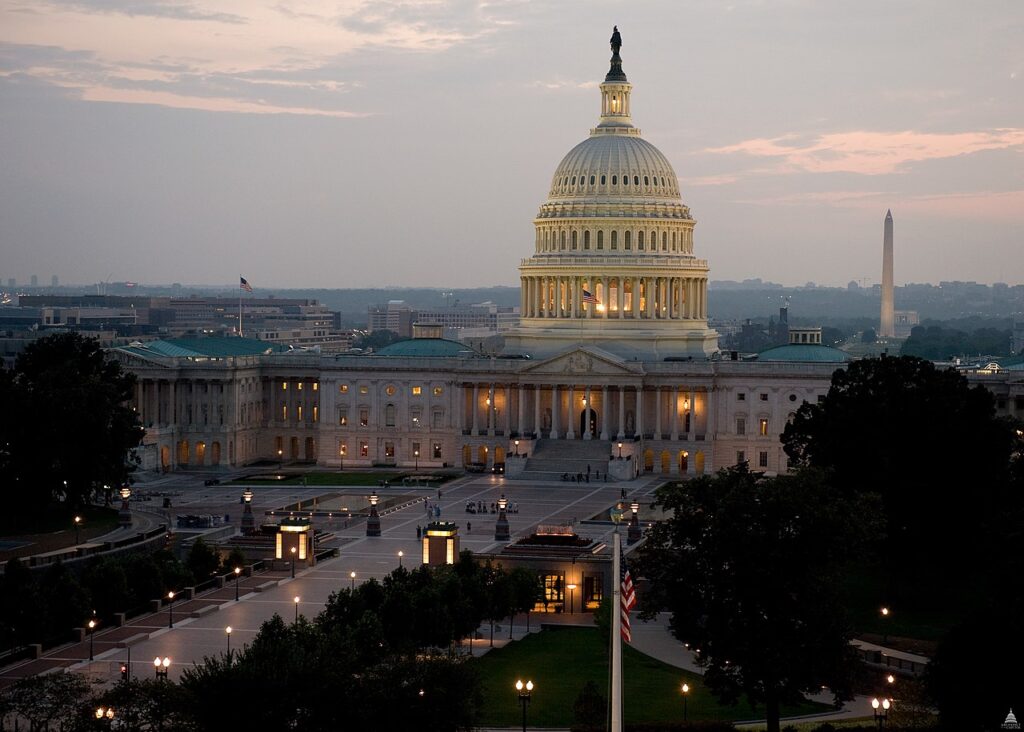Remarks from a panel discussion on populism at the “Foundations on the Hill” event for foundation leaders and officials in Washington, D.C.
Below are remarks, as prepared, delivered by Elizabeth McGuigan earlier this week during a panel discussion about populism on the first day of this week’s “Foundations on the Hill” event for foundation leaders and officials in Washington, D.C. The Philanthropy Roundtable also published a paper by McGuigan last December on the same topic.
The same Foundations on the Hill panel included remarks from Giving Review co-editor William Schambra, which are here.
When thinking about the current rise in populism on the right, it’s important to remember that this isn’t new—there have been waves of anti-elite sentiments throughout history. And we recognize that plenty of smart people on both sides of the aisle believe it’s healthy for our society to question the concentration of power within government or among a few individuals or institutions.
The sentiment isn’t wrong. But when this is used to support policy changes that are anti-wealth creation, anti-capitalism, anti-intellectual, and anti-entrepreneurship, that’s where we have concerns. The Philanthropy Roundtable takes issue with the argument that government policy must be wielded as a weapon to punish those we don’t agree with.
Unfortunately, in recent years, we are hearing more of this line of thinking among conservatives, who are traditionally more aligned on America’s founding principles of liberty, personal responsibility, and limited government. The growing populism on the right is not the reflection of shared values, rather it is a symptom of concerning social discontent.
The overarching message coming from the populist right is that the elites, including philanthropists, are too powerful. But more specifically, the criticisms we are hearing follow a handful of themes. Some argue the large foundations are too progressive. As Giving Review co-editor Michael Hartmann writes, “the largest foundations’ policy-oriented grantmaking is lopsidedly liberal and getting more so—or, in the current jargon, it is ‘woke’ and getting ‘woker.’”
And I don’t think many on the right disagree with this assessment. However, the problem comes when the proposed solutions are more government micromanaging of the charitable sector, and restrictions on freedoms of speech and voluntary association, rather than voicing disagreement with their approach and working to build and support alternative institutions.
A second theme from the populist right is that foundations are not connected to real needs of our communities. Tucker Carlson captured this sentiment, claiming “Rich people are happy to fight malaria in Congo. But working to raise men’s wages in Dayton or Detroit? That’s crazy.”
This theme is rooted in the us vs. them mentality that characterizes populism. The question becomes—if the donor’s philanthropic freedom is restrained—who gets to decide how to distribute charitable funds? Surely the conservative answer shouldn’t be to give more power over private assets to the government to spend as it sees fit.
The third critique is that foundations are too political. We’ve heard this from Catholic University of America law professor Roger Colinvaux, as he claimed that “Charities are supposed to be, and traditionally have been, outside of politics.” He specifically called out private foundations and donor advised funds in an op-ed where he asked, “Do we really want ‘red’ and ‘blue’ charities? Do we want to tinge American’s generosity with political taint?” We hear similar arguments from Scott Walter of the Capital Research Center—whose research implies that groups on the left are abusing dark money 501(c)(3)s to engage in political activity.
It's not hard to see where this is coming from. We live in a hyper-polarized environment where each political party has a defined position on most issues. However, missing from this criticism is an acknowledgment of the perfectly legal and long-standing policy activities of foundations and nonprofits and how this is distinct from prohibited political activities.
Finally, one of the most frequent attacks is targeted at the tax benefits that charitable entities receive. I’m sure J.D. Vance’s name will come up frequently in this panel and this one of his arguments is that “the Ford Foundation, the Gates Foundation, the Harvard University endowment, these are fundamentally cancers on American society, but they pretend to be charities, so they benefit from preferential tax treatment.”
Again, it’s true that charitable entities receive tax benefits for giving away money to charitable causes and it is true that we do not all agree with the causes some givers may value. The problem arises when critics assert that the tax benefits—rightly given to those no longer able to consume their assets—somehow convert private funds into public assets that should be distributed or at least micromanaged by the government. This is exactly what Vance calls for in his proposed rules for large foundations. Under his regime, foundations would be forced to pay out 20% of their endowments each year if they have endowments over $100 million. The consequence to such a proposal would be to discourage giving, to the detriment of the communities most in need.
What Vance and others get fundamentally wrong is that donating private money to charity does not make that money property of the government or the taxpayer. As we point out in our recent paper, the tax code provides preferences for charitable giving because as a society, we are more than just a government and its taxpayers. American history is rich with stories of individuals coming together on a voluntary basis to address our most pressing problems. The tax code was designed to protect and encourage this vibrant civil society that exists outside of the realm of government.
Now, Sen. Vance’s rants during his campaign haven’t turned into legislation yet this Congress. But we see similar threats in legislation that was introduced in both chambers in the last Congress—the so-called Accelerating Charitable Efforts Act, spearheaded by Republican Chuck Grassley and Independent Angus King in the Senate. Other sessions today have tackled the weeds of what was predominantly a bid to increase restrictions on donor-advised funds (DAFs). But the important part here is that the lawmakers did not want donors to retain control over the timing of their giving. This goes back to a “government knows best” mentality that we fear will continue to reappear in the context of DAFs and also foundation payout.
As I’ve said, we understand that there are criticisms of philanthropy that deserve thoughtful discussion and debate within the sector. What the Roundtable opposes are efforts to weaponize government policy to impose changes on givers that policymakers disagree with. As conservatives, the answer is never to lean into political power to silence large progressive foundations. We value philanthropic freedom, which means the right to direct resources to the causes and communities that meet a giver’s mission and align with his or her values. This is too important to roll down the slippery slope of restricting grantmaking to only the ideals backed by the majority or the government. Allowing for such restriction would hurt the numerous foundations doing work on causes we all value.
So what do we do about the rise in these arguments? I think the response is three-fold. The first piece is to address the falling trust in the sector. We saw improvements in trust during COVID—as givers stepped up in real, diverse, and voluntary ways, without the imposition of homogenized, one-size-fits all approaches.
The second piece of this, however, is for givers to talk about what you’re doing and why and how it is helping address the problems in our communities. The best way to do that is through storytelling. I think it’s natural, as foundation leaders, to want to stay out of the spotlight: whether it’s about keeping attention on the charities doing the work in our communities, or even a subtle discomfort with being seen as a member of the elite.
That’s understandable, but not helpful. To get at the issue of trust, we need to help shift the narrative. The work of America’s givers is crucial to supporting the vibrant tapestry of civil society and that is a story that needs to be told. The Roundtable is on its second year of a storytelling campaign we call Free to Give. We would love to help tell the story of the critical work that generous Americans support.
Finally, I will say that there certainly is a role for public debate of philanthropic activities. We can and should all voice concerns with various approaches to addressing the problems in our communities.
Philanthropic freedom does not mean freedom from criticism. We know it is impossible to only handcuff the work of the institutions with which one disagrees. Restrictions on philanthropy will hurt smaller institutions far more than the big guys. But the issues of today are too important to remain quiet. Philanthropic freedom includes the right to question those strategies, causes, and goals and to point out where the bad ideas fall short. It also means building new institutions or enhancing existing stale institutions to raise the voice of those seeking change. An ongoing, vigorous discourse will only make civil society stronger. Let’s have the important discussions and work to improve trust within and outside of the sector.





